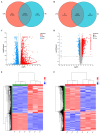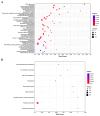Lipoteichoic Acid from Heyndrickxia coagulans HOM5301 Modulates the Immune Response of RAW 264.7 Macrophages
- PMID: 39275329
- PMCID: PMC11396992
- DOI: 10.3390/nu16173014
Lipoteichoic Acid from Heyndrickxia coagulans HOM5301 Modulates the Immune Response of RAW 264.7 Macrophages
Abstract
Heyndrickxia coagulans (formerly Bacillus coagulans) has been increasingly utilized as an immunomodulatory probiotics. Oral administration of H. coagulans HOM5301 significantly boosted both innate and adaptive immunity in mice, particularly by increasing the phagocytic capacity of monocytes/macrophages. Lipoteichoic acid (LTA), a major microbe-associated molecular pattern (MAMP) in Gram-positive bacteria, exhibits differential immunomodulatory effects due to its structural heterogeneity. We extracted, purified, and characterized LTA from H. coagulans HOM5301. The results showed that HOM5301 LTA consists of a glycerophosphate backbone. Its molecular weight is in the range of 10-16 kDa. HOM5301 LTA induced greater productions of nitric oxide, TNFα, and IL-6 in RAW 264.7 macrophages compared to Staphylococcus aureus LTA. Comparative transcriptome and proteome analyses identified the differentially expressed genes and proteins triggered by HOM5301 LTA. KEGG analyses revealed that HOM5301 LTA transcriptionally and translationally activated macrophages through two immune-related pathways: cytokine-cytokine receptor interaction and phagosome formation. Protein-protein interaction network analysis indicated that the pro-inflammatory response elicited by HOM5301 LTA was TLR2-dependent, possibly requiring the coreceptor CD14, and is mediated via the MAPK and NF-kappaB pathways. Our results demonstrate that LTA is an important MAMP of H. coagulans HOM5301 that boosts immune responses, suggesting that HOM5301 LTA may be a promising immunoadjuvant.
Keywords: Heyndrickxia coagulans; boosting immunity; immunoadjuvant; immunomodulatory mechanism; lipoteichoic acid; macrophages.
Conflict of interest statement
Authors Shiqi Zhang, Xiao Zhang, Yan Ding, Tingting Wang, Suwon Lee, Ying Xu and Chongyoon Lim were employed by the company Food & Biotech R&D Center, Coree Beijing Co., Ltd. The remaining authors declare that the research was conducted in the absence of any commercial or financial relationships that could be construed as a potential conflict of interest.
Figures









Similar articles
-
Lipoteichoic acid of Streptococcus mutans interacts with Toll-like receptor 2 through the lipid moiety for induction of inflammatory mediators in murine macrophages.Mol Immunol. 2014 Feb;57(2):284-91. doi: 10.1016/j.molimm.2013.10.004. Epub 2013 Nov 12. Mol Immunol. 2014. PMID: 24216318
-
A food-born heterocyclic amine, 2-amino-1-methyl-6-phenylimidazo[4,5-b]pyridine (PhIP), suppresses tumor necrosis factor-alpha expression in lipoteichoic acid-stimulated RAW 264.7 cells.Cancer Lett. 2009 Feb 8;274(1):109-17. doi: 10.1016/j.canlet.2008.09.003. Epub 2008 Oct 9. Cancer Lett. 2009. PMID: 18845389
-
Lipoteichoic acid-induced nitric oxide synthase expression in RAW 264.7 macrophages is mediated by cyclooxygenase-2, prostaglandin E2, protein kinase A, p38 MAPK, and nuclear factor-kappaB pathways.Cell Signal. 2006 Aug;18(8):1235-43. doi: 10.1016/j.cellsig.2005.10.005. Epub 2005 Nov 11. Cell Signal. 2006. PMID: 16289764
-
Lipoteichoic acid-induced TNF-α and IL-6 gene expressions and oxidative stress production in macrophages are suppressed by ketamine through downregulating Toll-like receptor 2-mediated activation oF ERK1/2 and NFκB.Shock. 2010 May;33(5):485-92. doi: 10.1097/SHK.0b013e3181c3cea5. Shock. 2010. PMID: 19823118
-
Differential immunostimulatory effects of Gram-positive bacteria due to their lipoteichoic acids.Int Immunopharmacol. 2009 Jan;9(1):127-33. doi: 10.1016/j.intimp.2008.10.014. Epub 2008 Nov 14. Int Immunopharmacol. 2009. PMID: 19013542
Cited by
-
Minocycline Ameliorates Staphylococcus aureus-Induced Neuroinflammation and Anxiety-like Behaviors by Regulating the TLR2 and STAT3 Pathways in Microglia.Brain Sci. 2025 Jan 28;15(2):128. doi: 10.3390/brainsci15020128. Brain Sci. 2025. PMID: 40002461 Free PMC article.
References
-
- Anaya-Loyola M.A., Enciso-Moreno J.A., Lopez-Ramos J.E., Garcia-Marin G., Orozco Alvarez M.Y., Vega-Garcia A.M., Mosqueda J., Garcia-Gutierrez D.G., Keller D., Perez-Ramirez I.F. Bacillus coagulans GBI-30, 6068 decreases upper respiratory and gastrointestinal tract symptoms in healthy Mexican scholar-aged children by modulating immune-related proteins. Food Res. Int. 2019;125:108567. doi: 10.1016/j.foodres.2019.108567. - DOI - PubMed
-
- Hoffman J.R., Hoffman M.W., Zelicha H., Gepner Y., Willoughby D.S., Feinstein U., Ostfeld I. The effect of 2 weeks of inactivated probiotic Bacillus coagulans on endocrine, inflammatory, and performance responses during self-defense training in soldiers. J. Strength Cond. Res. 2019;33:2330–2337. doi: 10.1519/JSC.0000000000003265. - DOI - PubMed
-
- Majeed M., Nagabhushanam K., Arumugam S., Majeed S., Ali F. Bacillus coagulans MTCC 5856 for the management of major depression with irritable bowel syndrome: A randomised, double-blind, placebo controlled, multi-centre, pilot clinical study. Food Nutr. Res. 2018;62:1218. doi: 10.29219/fnr.v62.1218. - DOI - PMC - PubMed
MeSH terms
Substances
Grants and funding
LinkOut - more resources
Full Text Sources
Research Materials

